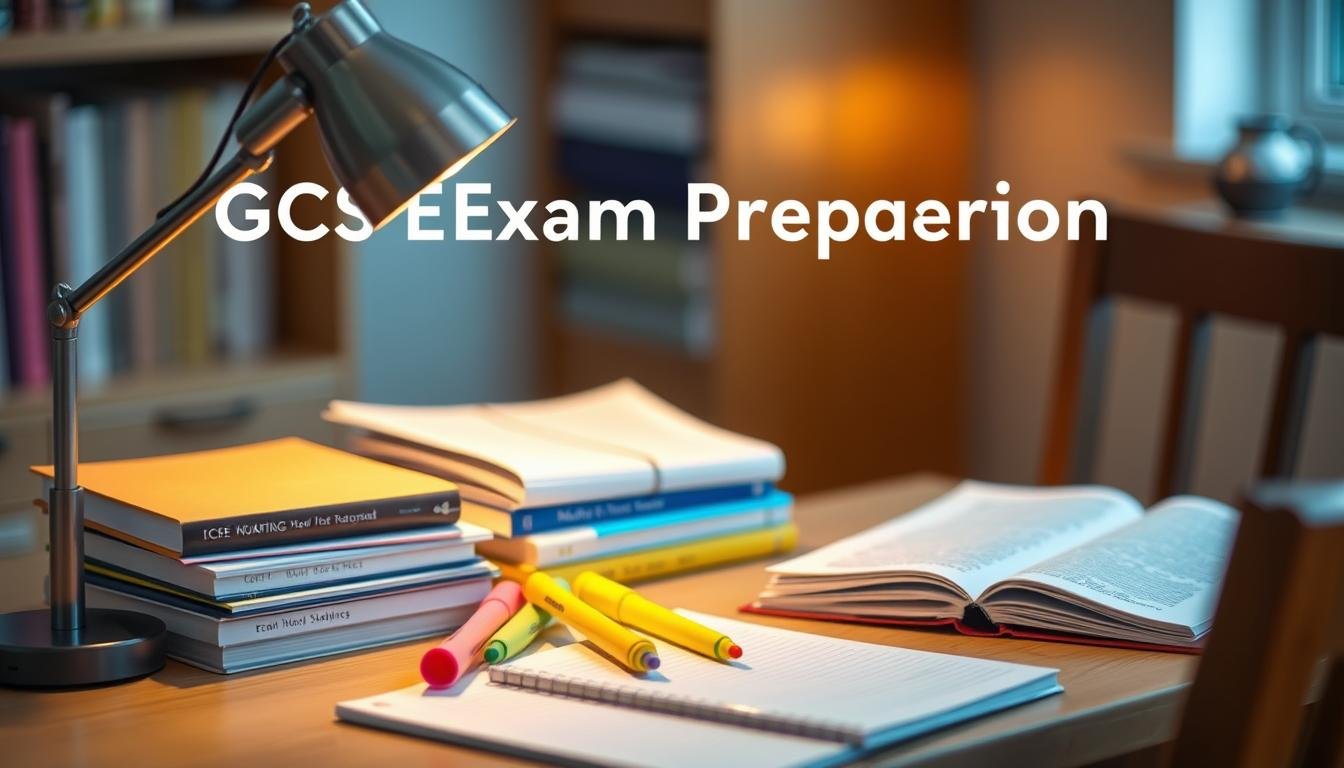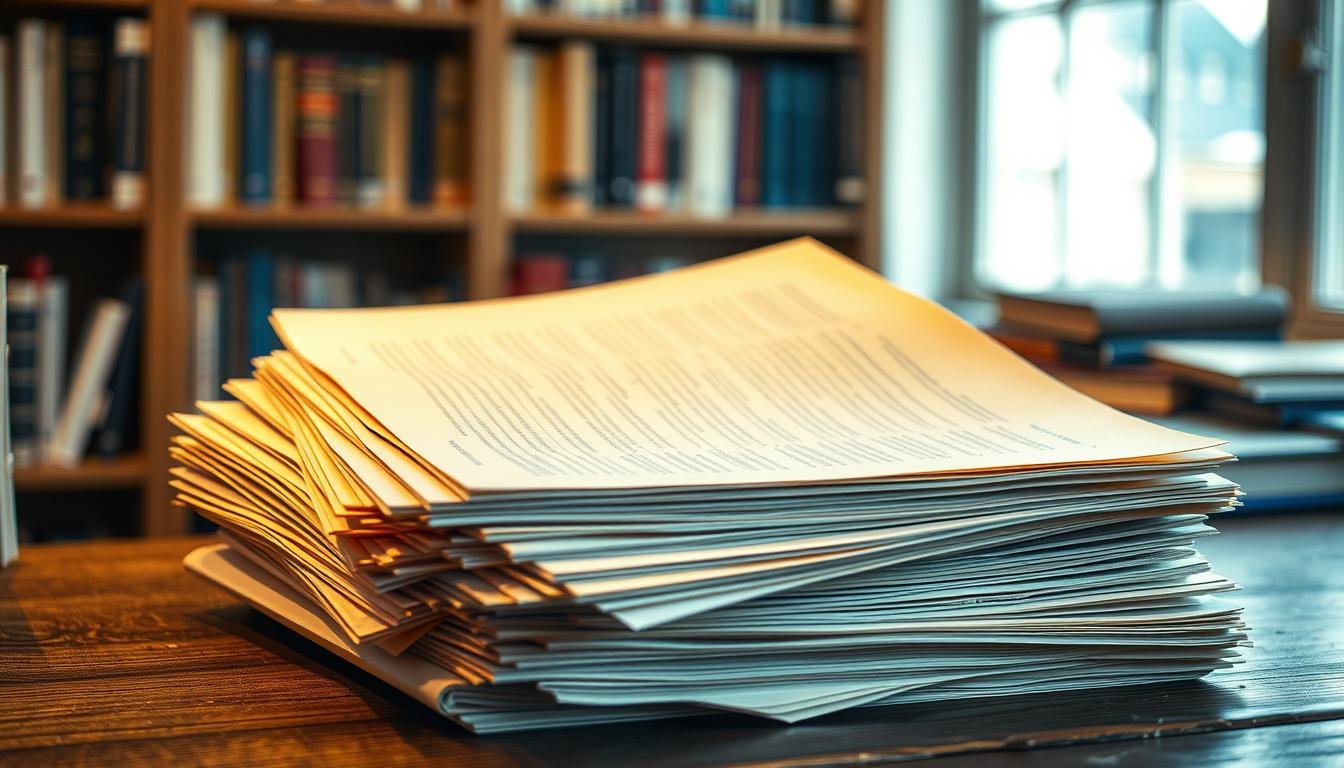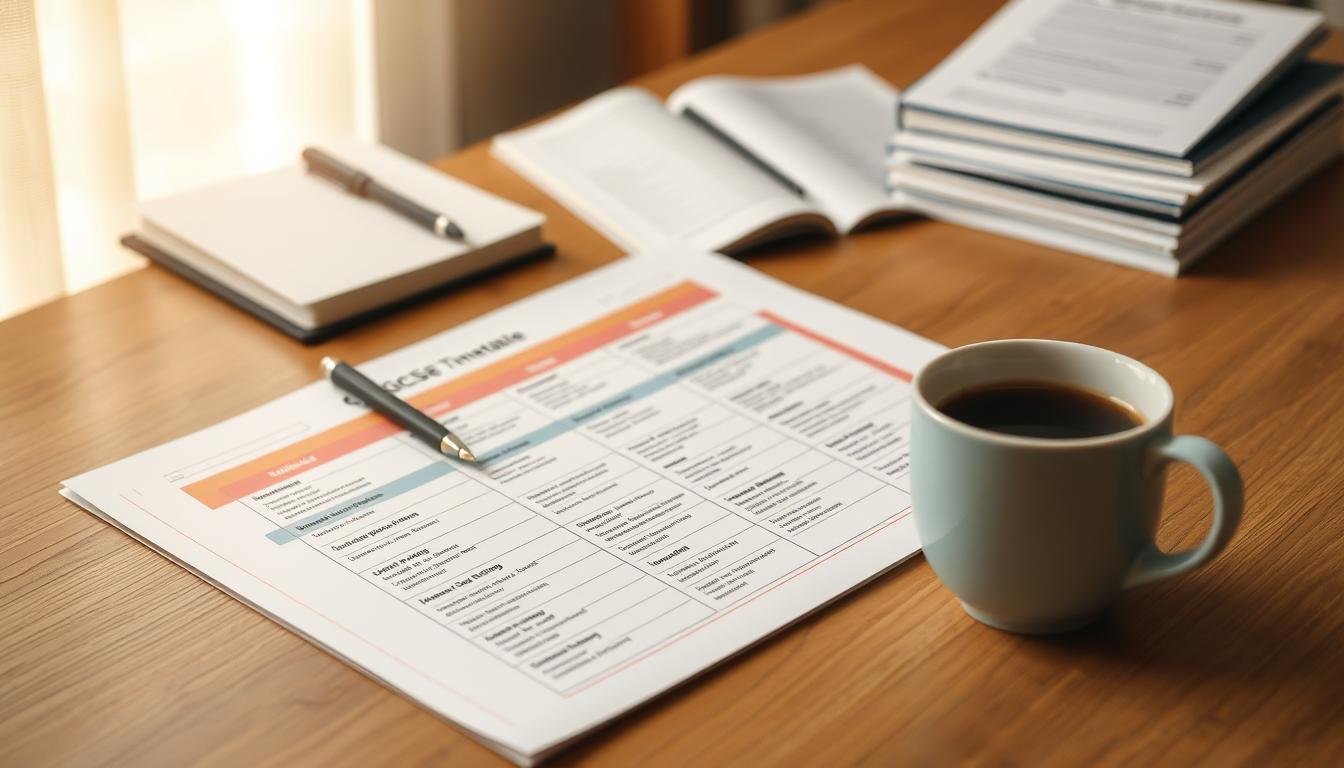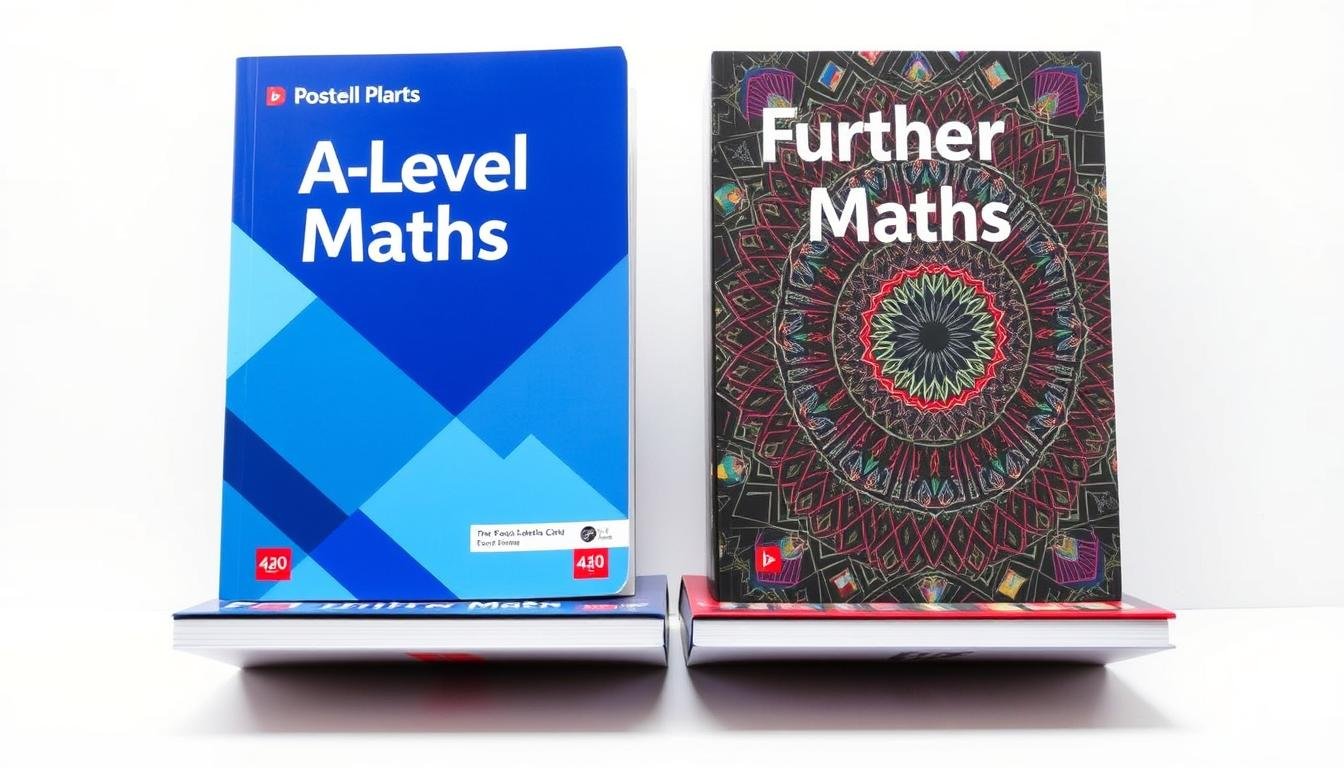Are you wondering how to make the most of your exam preparation as GCSE exams approach?
Learning the best revision strategies can really help you remember things better and do well in exams. Starting early can make revision less stressful. This lets you go into your exams feeling more confident.
Good revision techniques are key to getting good grades in GCSE exams. The right methods help you understand and remember things better. This leads to better results.
Key Takeaways
- Start your revision early to reduce stress.
- Use effective revision strategies to improve retention.
- Understand the material thoroughly to perform well.
- Practice regularly to build confidence.
- Review and adjust your revision plan as needed.
Understanding Effective GCSE Revision
Finding out how you learn best is key to doing well in GCSEs. The VARK theory says we can be visual, aural, read/write, or kinaesthetic learners. Knowing your style helps you pick the best revision strategies to remember and understand more.
If you’re a visual learner, using diagrams and mind maps can help. Aural learners might find podcasts or audio recordings useful. Here’s a table with some top study tips for each style.
| Learning Style | Effective Study Tips |
|---|---|
| Visual | Diagrams, Mind Maps, Infographics |
| Aural | Podcasts, Audio Recordings, Group Discussions |
| Read/Write | Note-taking, Summarising, Flashcards |
| Kinaesthetic | Practical Experiments, Role-plays, Interactive Activities |
Choosing the right revision strategies for your style can make your GCSE prep more effective.
10 Effective Revision Techniques for GCSE Exams

Effective revision is key to doing well in GCSE exams. There are many strategies to help you.
1. Creating a Structured Revision Timetable
Time management is vital for good revision. A structured timetable helps you plan your study sessions. This ensures you cover all the material before the exams.
To make a timetable, list all subjects you need to study. Set specific times for each subject. Break down big topics into smaller, easier chunks.
The Pomodoro Technique is great for staying focused. It involves studying in 25-minute blocks, followed by a 5-minute break. This method helps you remember information better.
3. Mind Mapping Key Concepts
Mind mapping is a visual way to organize information. It connects different ideas, making it easier to remember during exams.
4. Flashcards and Spaced Repetition
Flashcards are simple but effective for memorizing. Spaced repetition helps you review material at the best times, improving retention.
| Technique | Description | Benefits |
|---|---|---|
| Flashcards | Cards with information on one side and the answer on the other | Improves memorization |
| Spaced Repetition | Reviewing material at increasingly longer intervals | Enhances long-term retention |
5. Teaching Concepts to Others
Teaching others helps you understand better. It makes you clarify your thoughts and shows where you need more practice.
6. Using Mnemonic Devices and Memory Techniques
Mnemonic devices aid in remembering information. Acronyms, rhymes, and mind maps are very helpful.
7. Cornell Note-Taking Method
The Cornell Note-Taking Method divides your paper into two columns. One for notes, one for summaries. It organizes your notes and makes reviewing easier.
8. Working Through Past Papers
Using past papers for practice is very effective. It gets you used to the exam format and shows areas for improvement.
9. Self-Testing and Quizzing
Practice tests and self-testing are key. Regular quizzing helps spot weak areas and boosts confidence.
10. Group Study Sessions
Joining group study sessions is beneficial. It lets you share knowledge, discuss tough topics, and stay motivated.
Tailoring Revision Techniques to Different GCSE Subjects

To do well in your GCSE exams, it’s key to adjust your study methods for each subject. Each subject has its own needs, so you need to use different revision strategies. For example, Maths needs lots of practice with various questions to improve your problem-solving skills.
On the other hand, English Literature benefits from making character profiles and theme maps. These help you understand and analyse the texts better.
Here are some study tips for different subjects:
- For Science, focus on understanding key concepts and experiments.
- For Languages, practice speaking and listening alongside written exercises.
- For Humanities, develop a timeline of historical events or themes.
By adjusting yourexam preparation to each subject’s needs, you can make your revision more effective. This will help you get better grades.
Conclusion: Creating Your Personalised GCSE Revision Plan
Now you know the 10 effective revision techniques for GCSE exams. It’s time to make a plan that fits your learning style. By choosing the best strategies and sticking to them, you’ll be on your way to success in your GCSE exams.
Being consistent and having a positive mindset are key. Try different techniques to see what works for you. And don’t hesitate to change your plan if needed. This way, you’ll stay focused and motivated, leading to better grades.
Using the right strategies in your daily routine helps you remember things better. You’ll feel more confident on exam day. Take charge of your revision and create a plan that helps you reach your goals.
FAQ
What are the most effective revision techniques for GCSE exams?
Effective revision techniques include making a structured timetable and using flashcards. Practising past papers and joining group study sessions are also helpful. Mnemonic devices can aid in remembering key information.
How can I identify my learning style to improve my revision?
To identify your learning style, think about how you learn best. Are you a visual, auditory, or kinaesthetic learner? Once you know, you can tailor your revision to fit your needs, making it more effective.
How can I manage my time effectively during GCSE revision?
To manage your time well, create a revision timetable with breaks. Focus on your toughest subjects first, and give each topic enough time. Regularly check and adjust your timetable to stay on track and use your study time wisely.
Are practice tests and past papers useful for GCSE revision?
Yes, practice tests and past papers are very useful. They help you get used to the exam format and find areas to improve. They also boost your confidence, which can greatly improve your exam performance.
How can I tailor my revision techniques to different GCSE subjects?
Each GCSE subject needs a different approach. For example, maths needs lots of problem-solving practice. History might benefit from timelines and flashcards for dates and events. Knowing what each subject needs helps you tailor your revision.
Can group study sessions be beneficial for GCSE revision?
Yes, group study sessions are very beneficial. They let you work with others, share knowledge, and get new insights. Group study also keeps you motivated and accountable, making revision more fun and effective.




